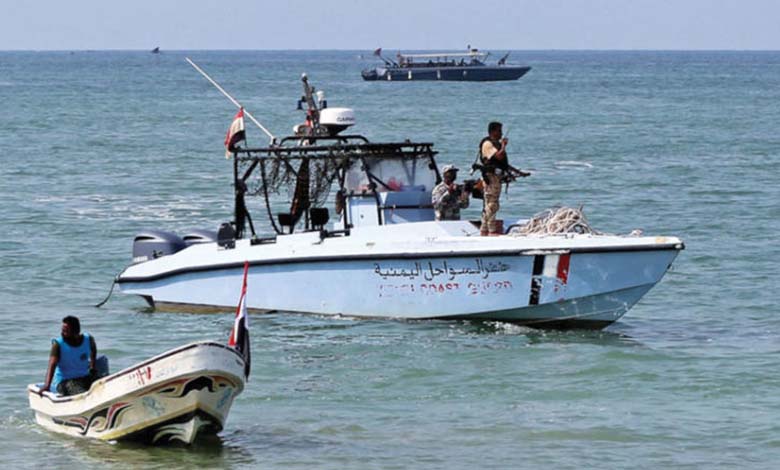Houthis escalate ship targeting in the Red Sea despite US airstrikes

Trafigura commodities trading company and the US military confirm that fire broke out on a tanker after the ship was hit by an anti-ship missile launched by the Houthis in the Gulf of Aden
The Red Sea region is witnessing unprecedented tension with the escalating US and British attacks on Yemeni cities such as the coastal city of Hodeidah, and the continued attacks by the Houthis on ships and tankers in the Bab el-Mandeb strait.
Trafigura and the US military have stated that the fire broke out on the Marlin Luanda tanker but there have been no reports of deaths or injuries after the ship was hit by an anti-ship missile launched by the Houthis in the Gulf of Aden yesterday, Friday.
Trafigura said in a statement, “Firefighting equipment onboard the tanker is being used to extinguish the fire that broke out in a cargo tank on the starboard side and bring it under control,” adding that they are in contact with the petroleum products tanker.
The US military had earlier said that a US Navy ship and other vessels provided assistance after the Marlin Luanda tanker was hit by an anti-ship missile launched by the Houthis.
The US Central Command said in a post on the X platform, formerly known as Twitter, that the Marlin Luanda tanker, flying the flag of the Marshall Islands, issued a distress call and reported damage.
It added that the ship Carney and other coalition ships were providing assistance to the tanker. It was reported that after about eight hours, the US military destroyed a Houthi anti-ship missile targeting the Red Sea and ready for launch, adding that the missile “posed an imminent threat to merchant ships and US naval vessels in the region.”
Yemeni Houthi movement fighters, allied with Iran, have launched waves of missiles and explosive-laden drones at ships since November 19 in response to Israeli military operations in Gaza. Some shipping companies have suspended crossings of the Red Sea and opted for much longer and more expensive routes around Africa.
The attacks primarily target container ships passing through the Red Sea. Many oil tankers continue to use this route. US and British warplanes, ships, and submarines have conducted dozens of airstrikes in response, targeting Houthi forces across Yemen. Al-Masirah channel affiliated with the Houthi movement said today, Saturday, that the US and Britain launched two air strikes targeting the Ras Isa port, the main oil export terminal in Yemen.
It was not immediately clear if this was the strike referred to by Central Command, and the US Fifth Fleet did not immediately respond to a request for comment. Sources indicated that China is exerting pressure on Iran, the Houthis‘ ally, to stop the attacks in the Red Sea and the Bab el-Mandeb strait as they threaten its economic and commercial interests.
Reports suggested that the Houthis were avoiding attacking Chinese ships, prompting some tankers to fly the Chinese flag. In an attempt to pressure the US, Russia hosted a delegation from the Houthis to discuss developments in the Red Sea, where Moscow condemned the strikes in Yemen.
The Russian Foreign Ministry also emphasized the importance of intensifying international efforts to quickly create the necessary conditions for a comprehensive Yemeni national dialogue under the auspices of the United Nations.
Late last year, the UN Secretary-General’s Special Envoy for Yemen, Hans Grundberg, announced that the conflict parties in Yemen had committed to engaging in a UN-led peace process as part of a roadmap to end the war.
The conflict in Yemen erupted in 2014 with the Houthis seizing vast areas in the north of the country, including the capital Sanaa.
The following year, Saudi Arabia intervened leading a military coalition in support of the Yemeni government, exacerbating the conflict that has claimed hundreds of thousands of lives. Violence has significantly decreased since a ceasefire was announced in April 2022, although its impact waned after six months.












